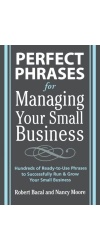Relationship Between Employee Engagement Scores And Stock Prices
You may have come across research that looked at the relationship between stock prices and employee engagement scores. If you analyze the data just right, what you can get is a positive correlation between the two.
That’s been falsely interpreted as supporting the idea that if you increase employee engagement, you actually increase share prices, and the return on investment to shareholders.
Even if the correlations found in the research, and the statistical analyses were properly done, the INTERPRATION of those results is dead wrong.
In fact, this research actually suggests that successful companies breed engaged employees — that the fact that a business is healthy actually CAUSES better employee engagement!
How can this be? It’s actually very simple, once you understand how the stock market works, psychologically.
What Drives Stock Prices In The First Place?
 Some researchers have claimed there is a correlation between stock prices and employee engagement. To the extent that this relationship might exist, there is NO evidence to support the claim that employee engagement causes higher share prices.
Some researchers have claimed there is a correlation between stock prices and employee engagement. To the extent that this relationship might exist, there is NO evidence to support the claim that employee engagement causes higher share prices.
Stock prices are determined by supply and demand. If more people want to buy than sell, the price goes up. If more people want to sell, prices drop. Simple. Remember this!
But what causes people to want to buy or sell? It’s the PERCEPTION buyers and sellers have about whether the stock will go up or down. That perception, or belief about the future may have something to do with actual data about the company, or it may have absolutely nothing to do with data about the company.
For example, when a company announces its quarterly results, the actual numbers are less important than whether they exceeded buyers EXPECTATIONS. So, you have situations where a company actually significantly increased revenue and profit, announces those results, and yet, the stock price falls. That’s because people expected more, and got less, and has nothing to do with whether, objectively speaking, the company is healthy.
Or, you find that when companies announce layoffs, a signal of ill health perhaps, it’s often, but not always the case that the stock price will go UP, not down, as you’d think. That’s because people BELIEVE that it’s getting its house in order for the future.
So, it’s simply a supply and demand marketplace, based not on data, performance, etc, but on a wide variety of things that affect buyer and seller beliefs about whether the stock will rise or fall.
The stock market is, in many ways, irrational. A company can do well financially and have its stock fall. Or, a company can be doing poorly (Twitter is a great example), and its stock can rise way out of proportion to its “business numbers”.
No Way Stock Prices Can Be Affected By Employee Engagement
So, how could having more engaged employees actually cause higher stock prices? Consider these possibilities:
Investors could know that a company has engaged employees, and have more confidence in its future. OK. That can’t be. Investors do NOT know what companies have engaged staff and what companies do not, so this isn’t happening.
Engaged Employees Cause Better Business Results which in turn causes investors to have more confidence in the company, and then buy their stock. That’s plausible on its face, but we’ve already stated that investors buy or sell based on future expectations, and while that belief or set of perceptions could be influenced by actual past performance data, we’ve already explained that the market isn’t rational that way. If it was, we could predict which stocks would go up or down, just looking at their business data, profits, and so on. Nobody can.
Further on this, if engaged employees did improve business results, which made the stocks more desirable, you’d expect this effect to only happen over the long term. It takes time to increase engagement, if you can do it at all, and it takes more time to see whether or if that improvement improves business results. We’re not talking a few months, but at least six months and a lot more.
Stocks fluctuate all over the place. Employee engagement simply cannot and does not explain any of these changes, even if there is some correlation between EE and stock prices as some have reported.
In short. If you understand the market, it’s simply not plausible that higher engagement leads to higher stock prices. It’s just silly. It’s just straight bullshit.
So How To Explain The Correlation?
It’s actually pretty simple. Both employee engagement and stock prices are affected by the same thing, longer term success of the company. A healthy company — one that consistently outperforms expectations will have higher stock prices over time. A healthy company, as we’ve suggested also will breed engaged employees, because, in a nutshell, healthy prosperous companies tend to be better places to work, have better management and leadership, etc. Over the long haul.
Not the short haul. The long haul.
Companies that are successful over the long haul will tend to have stable or increasing stock prices AND they will create an environment where employee engagement can improve. On the other hand, poorly run companies will be more prone to stock price falls over the long term, AND more prone to lower engagement due to poor management, overwork, and all that nasty stuff.






